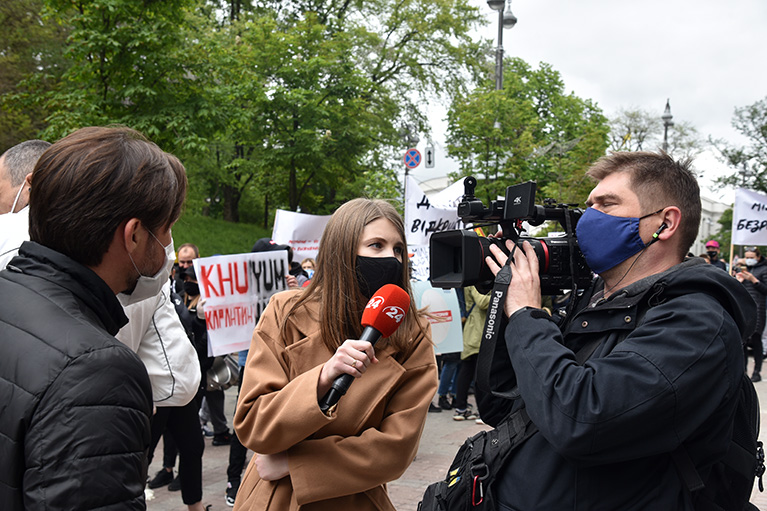New IREX study captures effect of pandemic on media and information in Europe and Eurasia

A new study, IREX’s 2021 Vibrant Information Barometer (VIBE), highlights that several factors—the global financial downturn, governments withholding information, and misinformation related to the worldwide COVID-19 pandemic—have materially impacted the media and information sector in 13 countries throughout Europe and Eurasia.
After almost 20 years of conducting the Media Sustainability Index, IREX developed the Vibrant Information Barometer with funding from USAID to better capture and measure the way information is produced and utilized today. Through expert in-country panels, VIBE seeks to assess how vibrant countries’ information systems are in the digital age and explicitly examines newer concepts, such as media literacy and information bubbles, along with media resources and quality of information in the media and information sector.
The 2021 edition of VIBE shows that a media sector already struggling with reduced advertising revenue has been further compromised by the 2020 global economic downturn triggered by the pandemic. While there is not yet any specific research that has studied the effect of the COVID-19 pandemic on Serbia, data presented in a USAID-supported forum in the fall of 2020 showed that the advertising market in the first part of 2020 contracted. Moreover, as advertising throughout the region has become increasingly politicized, media outlets are more susceptible to politically motivated benefactors who affect editorial content, leading to increased self-censorship.
Panelists throughout the region also highlighted the measures their respective governments took to suppress public health information and data related to the pandemic. In Moldova, the panel discussed that the public’s right to access information had been limited, while the Georgia panel observed that the country’s leading public health authorities froze out media outlets for asking critical questions and that journalists’ already limited access to public information further deteriorated. The Russian government–imposed restrictions to control COVID-19 gave authorities leverage to limit public oversight of the 2020 constitutional vote. The government further exploited COVID-19 restrictions to restrict oversight of the regional and local elections held in September 2020.
Finally, governments throughout the region held back information, while misinformation—including rumors and conspiracies about the pandemic—ran wild. Many of them were localized versions of unsubstantiated international plots related to implanting microchips or the role of 5G technology. The North Macedonian panel noted that despite the lack of formal data, two fact-checking operations in the country cited that approximately two-thirds of the articles they debunked in 2020 were related to COVID-19.
VIBE is made possible by the support of the American people through the U.S. Agency for International Development (USAID). VIBE includes country reports and a dashboard, the VIBE Explorer, for examining and comparing data trends, regions, and individual countries.